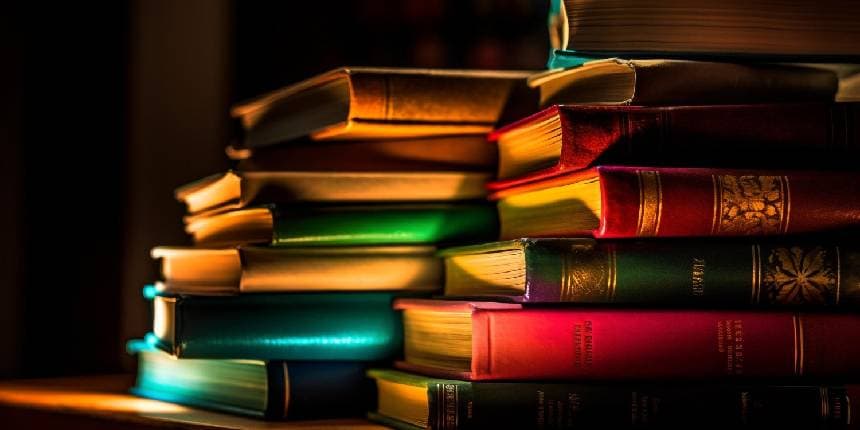Telangana Board Class 10 Science Syllabus 2025-26 – Free PDF Download
The Directorate of Government Examinations, Telangana, publishes the Telangana Board SSC Syllabus 2025-26 for every subject, including Science. The BSE Telangana SSC Science syllabus 2025-26 is designed to help students gain a solid understanding of the themes related to Science. The Telangana Board 10th Science syllabus 2025-26 is divided into two parts, i.e., Physical Sciences (which includes chapters from physics and chemistry) and Biology. The Science paper is held for 100 marks, with each paper carrying 50 marks. Students can download the syllabus through the Telangana Board official website at bse.telangana.gov.in, or through the direct link provided in this article.

Download Telangana Board Class 10 Science Syllabus 2025-26
Science syllabus for class 10 Telangana board 2025-26 consists of chapters like Reflection of light at curved surfaces, Acids, Bases, and Salts, Structure of the Atom, Chemical Bonding, and more. Download the Telangana board 10th Science syllabus PDF 2025-26 by clicking on the link given below:
- TS SSC Biology Syllabus 2025-26: Download Here
- TS Board SSC Physical Science Syllabus 2025-26: Download Here
TS SSC Syllabus 2025-26 for Physical Science
Unit | Sub - Topics |
|
|
|
|
|
|
|
|
5. Human eye and colourful world |
|
6. Structure of atom |
|
7. Classification of Elements – The Periodic Table |
|
8. Chemical Bonding |
|
9. Electric Current |
|
10. Electromagnetism |
|
11. Principles of Metallurgy |
|
12. Carbon and its compounds |
|
TS SSC Syllabus 2025-26 - Biology
1. Nutrition |
|
2. Respiration |
|
3. Transportation |
|
4. Excretion |
|
5. Coordination |
|
6. Reproduction |
|
7. Coordination in Life Processes |
|
8. Heredity and Evolution |
|
9. Our Environment |
|
10. Natural resources |
|
Telangana Board Class 10 Others Subject Syllabus:
Students preparing for the Telangana board 10th exam also look for syllabus for other subjects. Below, we have provided a direct link for reference.
Students can prepare for NEET and JEE Main using the NCERT syllabus and study materials. We have provided some useful study materials for students-
Frequently Asked Questions (FAQs)
The board is in charge of regulating and supervising Telangana's intermediate education system.
Telangana Board Class 10 science syllabus is divided into two parts – physical science and biology.
You can download the hall ticket from the official website of Telangana State Board of Intermediate Examination.
It is located at Nampally, Hyderabad.
Questions related to TS SSC Board
On Question asked by student community
Hello,
The Telangana SSC board examination is conducted by the Directorate of Government Education, Telangana. This examination is very important as it will open doors to higher education for the candidates.
The total marks is 100 for each subject and one needs to score a minimum of 35% to pass
HELLO,
Below i am providing you the link through which you will be able to download the TS SSC Last 5 Years question Papers PDF
Here is the link :- https://school.careers360.com/boards/bse-telangana/telangana-ssc-last-5-years-question-papers
Hope this will help you!
Hello,
The Telangana SSC examination is conducted by the Directorate of Government Examination, Telangana. This examination is for the students of class 10.
The previous year question papers are a useful resource for the students preparing for the aforesaid examination. Practicing with the question papers will give the students an
Hello,
You can access Telangana SSC (Class 10) 2025 board question papers from the mentioned link below:
https://school.careers360.com/boards/bse-telangana/telangana-ssc-last-5-years-question-papers
Hope it helps.
Hi dear candidate,
Can you please specify the board of education for which you need the mathematics question papers for class IX so that we can guide you ahead.
The below links may help you:
UP Board Class 9 Half Yearly Question Papers 2025-26: Answer Key & Solution PDF
Applications for Admissions are open.
As per latest syllabus. Physics formulas, equations, & laws of class 11 & 12th chapters
JEE Main Important Chemistry formulas
Get nowAs per latest syllabus. Chemistry formulas, equations, & laws of class 11 & 12th chapters
JEE Main high scoring chapters and topics
Get nowAs per latest 2024 syllabus. Study 40% syllabus and score upto 100% marks in JEE
JEE Main Important Mathematics Formulas
Get nowAs per latest syllabus. Maths formulas, equations, & theorems of class 11 & 12th chapters
